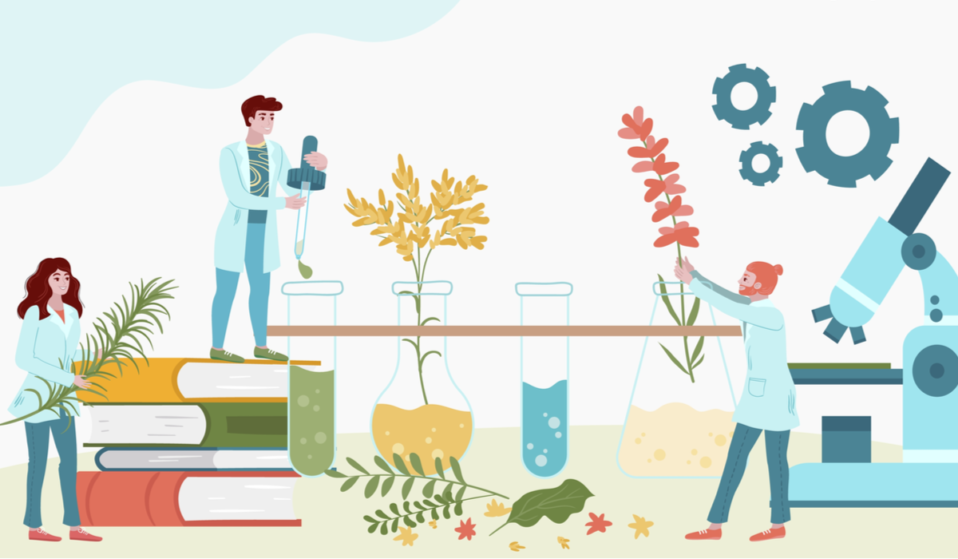THE CHALLENGE
—Unmet Medical Need for Holistic Cancer Treatment
Cancer is a heterogeneous disease. Heterogeneity in cancer is not limited to differences between different patients, but also occurs within a single patient. This intrapatient or intratumoral heterogeneity can present great challenges for cancer treatment.
This complexity limits the effectiveness of single chemical drugs that target one pathway or one family of genes in the body.
For example, in the targeted treatment for Hepatocellular Carcinoma (HCC), the most common type of liver cancer and 2nd deadliest cancer in Asia:
Patients treated with sorafenib, the global first-line therapy for HCC, have a median overall survival of 10.2 months. Unfortunately, serious adverse effects occur in 80% of patients and can lead to discontinuation of treatment in over one-third of patients and permanent discontinuation in 11% of patients.
Cancer researchers have been working diligently to solve this problem, and more new treatments are becoming available in recent years. However their response rates, efficacy and safety profiles are insufficient.
THE SOLUTION
Where is the solution? Over ten years ago, AFCR made a directional decision on supporting the modernization of the Traditional Chinese Medicine (TCM). Since 2010, AFCR has been supporting a pioneering new paradigm in polychemical, multi-target medicines of botanical drugs based on converging Western and Eastern medicine.
Western medicine, emphasizing the microscopic level, most often uses chemicals aimed at a specific target important in the abnormal growth pathway of the cancer cell. The target may also play an important role in normal bodily functions and long-term usage of potent chemicals will usually result in toxicity. Drug resistance or tolerance is also a common problem in targeted therapy.
Eastern medicine of which TCM is one of most advanced and experienced-based, has accumulated over thousands of years and includes botanical medicines. Its principles emphasize the macroscopic level and holistic approach, requiring multiple chemicals to act on different targets or organs.
Therefore, a systems biology approach integrating a patient’s micro-scopic/environment and macro-scopic/environment should be integrated into future medicines.
THE SOLUTION
—Western and Eastern Medicine Converge—WE Medicine
After a decade’s research work, a botanical cancer drug, YIV-906, in combination with frontline drug, sorafenib, is now treating HBV+ HCC patients in clinical trials.
This drug discovery platform employs rigorous modern human drug validation principles and bioinformatics to learn from traditional medicines, and mechanism-based quality control to manufacture consistent complex mixtures. This convergence of Western and Eastern medicines has been termed “WE”.
YIV-906 has multi-targets in the tumor microenvironment with synergistic mechanisms of action. Its properties include:
1) Potentiates anti-tumor activity for immunotherapy, chemotherapy, and radiation therapies
2) Protects gastrointestinal (GI) tissue from the harsh effects of therapy
Clinical Trials – Reaching More Patients in Asia
In the last half of 2020, eight clinical trial sites have begun enrolling HBV+ HCC patients including: Three more sites in the USA; Hong Kong (Queen Mary Hospital); and four more sites in Taiwan (National Cheng Kung University Hospital, Tainan; Taipei Municipal Wanfang Hospital; Taipei Medical University-Shuang Ho Hospital; Taipei Veterans General Hospital).
THE IMPACT
—Improve Treatment Outcomes for Patients and More
Western and Eastern medicine are evolving towards each other. The convergence of Western and Eastern medicine incorporates a systems biology approach. In this application of WE medicine, YIV-906 can become a major part of a new rational combination treatment strategy – that can improve response rates and improve the quality of patient’s lives in a meaningful way.
HOW YOU CAN HELP
—You Can Bring Hope of Life-Saving Cancer Care
Your support of AFCR will enable scientists and the research community to develop holistic, systems biology cancer treatment approaches to cancer diagnostics, treatment and even prevention When you support AFCR, you’re funding a vision: saving lives and eliminating the global burden of cancer.

